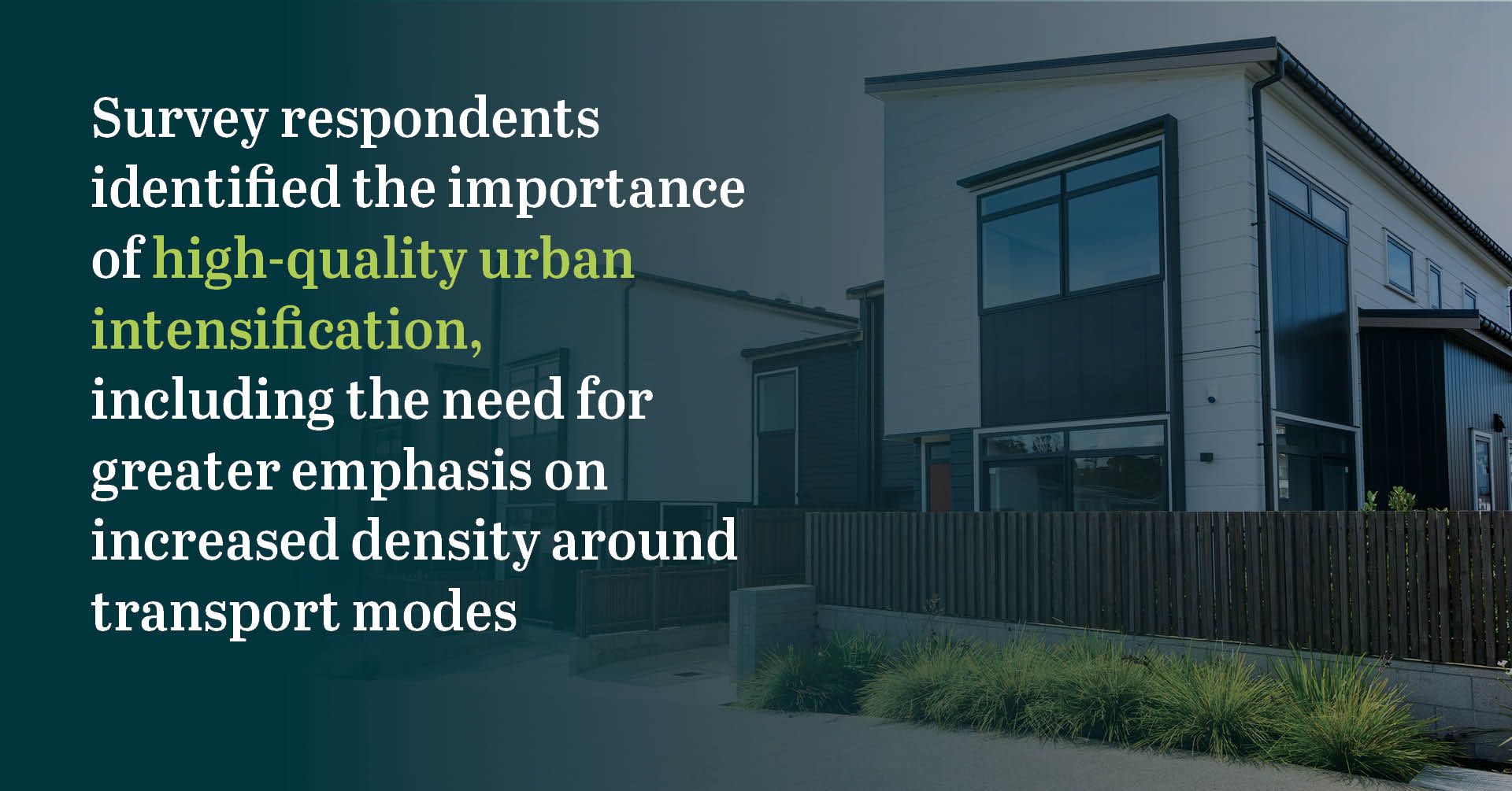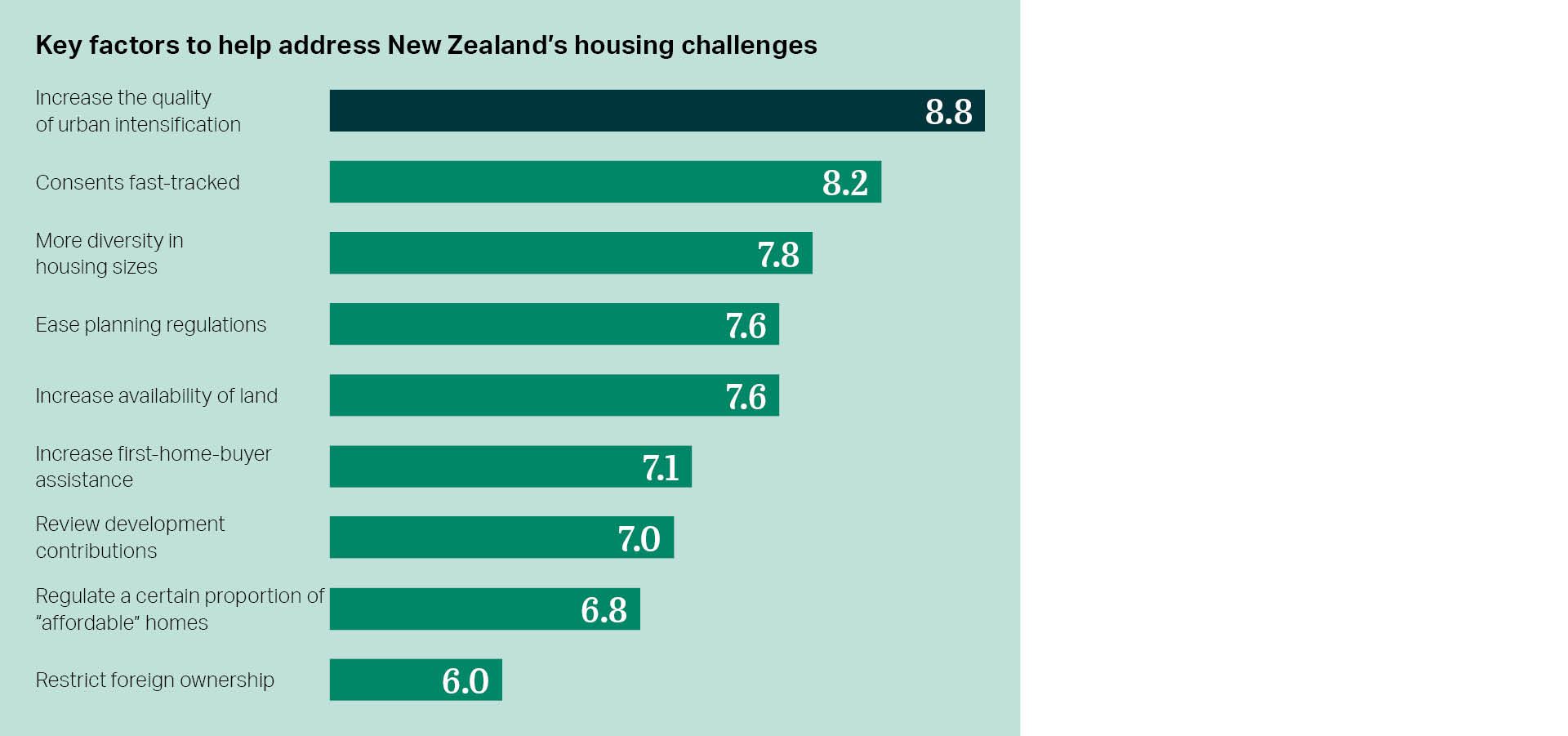New Zealand’s growing population and demand for housing is increasing pressure on housing supply. While Auckland and Tauranga are known for becoming increasingly unaffordable, many other major cities across New Zealand are catching up as house prices and rents rise faster than income levels across the country.
There is no denying New Zealand is in the midst of a housing crisis. It has been building for over a decade, but it has worsened significantly since the coronavirus pandemic. A number of existing challenges — such as the high cost and limited availability of materials, skill shortage in the construction industry, and regulations constraining urban supply — have been exacerbated through record low interest rates and a faster than expected economic recovery.
All these challenges impact more than just house prices. Rental prices are increasingly significantly year-on-year, tenants have limited protection, and the quality of many rental properties remains substandard.
Our survey asked respondents to rate the importance of nine factors that could help New Zealand tackle its housing challenge. The overall sentiment from respondents is to invest in quality, ensure good governance around permitting and approvals processes, and cater for different community needs. There is a relatively even spread across the options, suggesting a combination of approaches is required to remedy these issues and pull New Zealand out of this crisis.
High-quality urban living
Survey respondents identified the importance of high-quality urban intensification, including the need for greater emphasis on increased density around transport nodes. Clear concerns were expressed about the quality of buildings, such as ‘poor quality options that leak health, energy and carbon’.
Our ability to deliver high-quality urban environments that are liveable, and meet the needs of inner-city inhabitants, will be of central importance as our main urban centres implement the new National Policy Statement on Urban Development.

Streamlining the process
Fast-tracking consents, easing planning restrictions and increasing the availability of land received similar amounts of support from respondents. This indicates that streamlined and efficient regulatory processes are needed to meet demand; however, these processes should not hinder the quality of the housing options delivered.
The Resource Management Act overhaul is seen as a facilitator for accelerating progress. However, there is concern amongst respondents that some housing solutions could present environmental risk. (i.e. the use of available land).

Responding to market needs
Respondents who ranked greater diversity in housing sizes and increased first-home-buyer assistance highly are pointing to the needs of the market — New Zealand’s population is ageing, resulting in different long-term housing needs. There is increased acceptance of smaller, high-quality dwellings, which are a valuable addition to our traditional larger format housing stock. The concept of regulating a proportion of affordable homes ranked as a low priority factor.
There was also a call to continue formally investigating quality prefabricated housing, which is one option to ease the housing shortage, speed up building, and bring down prices. A significant number of respondents praised Kāinga Ora for the progress of its urban regeneration programmes that aim to provide more affordable high-quality housing across New Zealand (such as the Auckland Housing Programme).
Development contributions and restricting foreign ownership are low priorities
Respondents saw the potential for reviewing developer contributions as a low priority factor to combat New Zealand’s housing challenges. However, some suggested ‘developers should be paying for upgrading the areas surrounding their subdivisions’.
Restricting foreign ownership was ranked as the lowest priority, perhaps due to the lack of improvement in the housing market since the government tightened its rules in 2018. Respondents also commented that the lack of long-term investment in the sector, as opposed to foreign ownership, is generally seen as a much greater cause of New Zealand’s housing challenges.